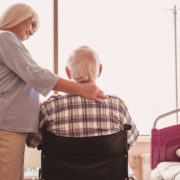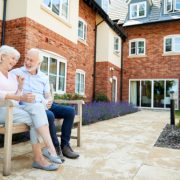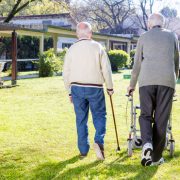Aging in Place: Supporting Residents’ Independence and Dignity in Nursing Homes
Most people do not want to go out of their comfort zones. The same goes for adults who wish to stay in their own homes safely and independently. But as you age, living alone and asking for family’s help when needed can disrupt daily activities and can cause safety concerns. Nursing Homes are dedicated places for older seniors who want to maintain their freedom and dignity as they age, regardless of income and background. These facilities allow senior adults to still live fulfilling lives safely through care programs and support. Aging in place will enable seniors to live in their preferred environment while maintaining independence and dignity and enjoying activities that add meaning to their lives.
The Importance of Dignity and Independence in Nursing Homes
Independence and dignity are important life aspects regardless of age. These do not change, especially for nursing facility residents who are often faced with emotional and cognitive challenges. Promoting independence and preserving dignity contribute to their overall life quality.
In nursing facilities, residents are treated with compassion and care. Even in nursing care facilities, residents’ preferences, including their privacy and independence, are recognized, boosting their self-worth.
Meanwhile, promoting liberty allows residents to decide on what to do regarding daily activities, self-care, entertainment, socialization, and other pursuits that help them maintain their sense of identity. Independence promotes a sense of control and confidence.
Dignity and liberty go hand in hand in creating a supportive and nurturing nursing home environment. By upholding these values, residents maintain their self-worth and feel respected, valued, and empowered.
When senior adults feel valued, they are likely to have positive relationships with their fellow residents, carers, and staff. They are also likely to engage in social activities, allowing them to feel a sense of belonging and contributing to their overall quality of life.
How to Encourage Independence & Dignity in Nursing Home Residents
Here are some suggestions on how nursing homes can support autonomy and self-worth in their residents:
Involvement
Encourage residents to participate in making choices over their daily activities, care needs, etc. Provide them with options for social activities, entertainment, and meals, allowing them to make choices that align with their preferences and needs.
Physical Exercise in Nursing Homes
Encourage residents to exercise regularly like stretching, walking, or other light exercises. Engaging in light exercises can help improve the mood alleviating symptoms of depression and isolation. Simple movements can also improve mobility, flexibility, and strength.
Socialization
Let residents choose the activities or social groups they want to join. This will promote independence and allow them to build relationships with their community.
Privacy in Nursing Homes
Always respect the resident’s privacy. Make sure to uphold the privacy and dignity at all times. Be careful with the use of language and perform care tasks sensitively.
Technology
Nursing care facilities must use the latest technology to enhance safety and accessibility.
But each individual is unique, still, it is best to use a personalized approach to help them lead fulfilling lives.
Looking for exceptional senior care in Nebraska? Click here to learn more about Fallbrook Assisted Living!
Fallbrook Assisted Living is proud to offer its services to Fremont, NE, and surrounding areas and cities: Arlington, Cedar Bluffs, Ames Nickerson, Fontanelle, Arlington, Leshara, Colon, and Hooper





